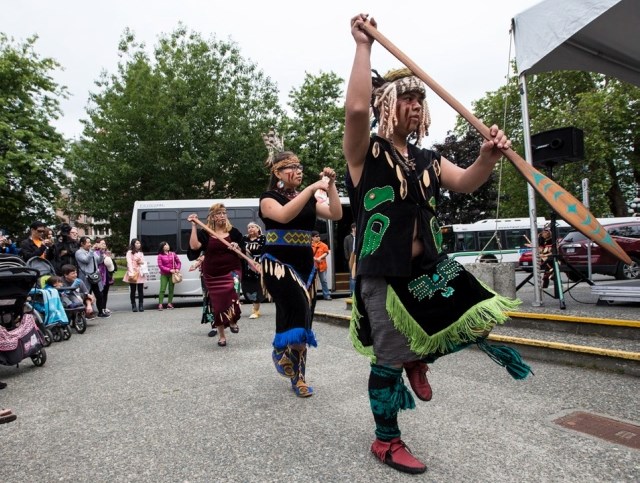Every time I present at a conference or to an organization on the Indigenous relations I am a part of, I like to include a slide called “Mistakes and how to recover.” Sharing mistakes provides an opportunity for learning and also demonstrates that no one is perfect.
Most of the time I like to share about mistakes I’ve made with Indigenous communities, because I think it helps other people to reach out of their comfort zone. I’ve never made a mistake that I haven’t learned from. During a conversation earlier this week, I was reminded of a different kind of mistake when it comes to Indigenous relations.
Back in April at the Canadian Housing and Renewal Association national conference I was asked to assist with Indigenous relations on behalf of the host organization. CHRA is based in Ontario, and wanted to ensure it was properly engaging with the First Nations whose traditional territory the conference was held on. The venue was the Victoria Convention Centre.
I met with the leadership for Songhees and Esquimalt Nations on behalf of CHRA to ask for guidance on respecting protocols and honouring the territory. I delivered letters and gifts to introduce the event to the leadership, I attended meetings and followed the instructions that I was given.
Chief Ron Sam of Songhees Nation asked me to have the Lekwungen Dancers to perform and to have Songhees Coun. Garry Sam provide the welcome. On the day of the opening ceremony I had secured a change room for the dancers and arrived early at the Victoria Convention Centre to greet them and Coun. Sam, who was also a dancer.
I ensured the stage setup would accommodate the dancers and double-checked everything to make sure it would be flawless. Making sure everything was perfect was my role in honouring the Nation and it is something that I take very seriously.
Everything went well and the Lekwungen Dancers and the traditional welcome started the day off in a good way and was well received by everyone.
Two days later, I was at a closing reception and I was standing with a small group of conference delegates that I hadn’t met before. We were casually talking about the conference and our roles in housing. When it was my turn, I mentioned how I helped with the Indigenous relations for the conference and talked about how I co-ordinated the Indigenous component for the opening ceremony and the elder for the Indigenous caucus.
I made a comment about the dancers being a way of honouring the chief’s request and weren’t just there for entertainment.
It was then that a woman said: “Oh that’s interesting, because I thought they were for entertainment.”
It was at that moment that I realized that I had worked so hard to honour the Nation, but I missed the opportunity to educate the hundreds of delegates from across Canada about valuing Indigenous communities and building real relationships with them.
I thanked the woman and small group I was with for their perspectives and feedback. They were so interested in the process I went through and said they wished that was shared with all the delegates.
It was that piece of criticism that made me rethink the work I do and importance of not just doing good work, but sharing the work and explaining why it’s done that way. Of course, I want to ensure Nations that I am working with are honoured, respected and valued. I also want to share these stories with others to hopefully change perspectives and spark new ideas.
Starting to build relationships with Indigenous communities can be a daunting task and often people aren’t sure where to start. People are scared to make mistakes or are just too shy to leave their comfort zone. Sometimes I also think that people are not aware of the opportunities they are missing out on. One of my favourite phrases lately is: “You don’t know, what you don’t know.”
When you are immersed in something it’s easy to forget how other people see things and if making change is the goal, it’s important to ensure the work is displayed in a way to facilitate that.
My passion is creating mutually beneficial partnerships between Indigenous and non-Indigenous communities, because our communities are stronger as a whole when we all work together.
Charla Huber is the director of communications and Indigenous relations for M’akola Housing Society and M’akola Development Services.



